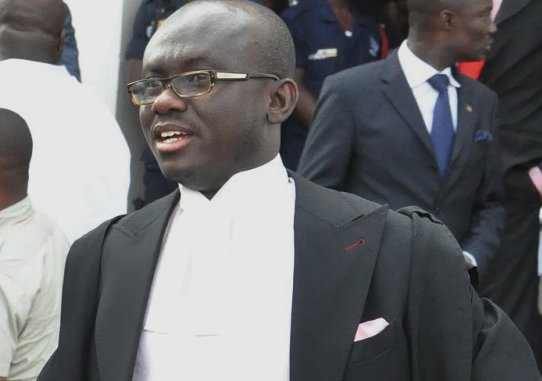SC ruling on Deputy Speakers’ right to vote in accord with International best practices-Attorney General
“In England, it is the same. In America, it is the same. In Australia, Canada, everywhere it is the same. Even in Kenya, South Africa, it is the same."

The Attorney General, Godfred Dame has noted that it is the practice in other jurisdictions for the Speaker of Parliament or Deputy to vote when he or she is a member of Parliament.
He noted that it is the same practice in England, South Africa, Australia, Canada, and Kenya for the Speaker or Deputy Speaker who is an MP not to lose their right to vote.
“It is important to note that in all jurisdictions around the world, whenever the Speaker of Parliament or Deputy Speaker of Parliament is a member of parliament, he always has the right to vote.”
“In England, it is the same. In America, it is the same. In Australia, Canada, everywhere it is the same. Even in Africa Kenya, South Africa, it is the same. Whenever the Speaker or Deputy Speaker is an MP, he never loses the right to vote,” he noted.
Speaking to the media after the Supreme Court proceeding on March 9, 2022, the Attorney General further said that nowhere in the 1992 Constitution has there been stated that a Deputy Speaker loses his right to vote when he presides.
The Supreme Court on March 9, 2022, unanimously okayed the decision by the 1st Deputy Speaker of Parliament to participate in Parliamentary voting and to be counted in forming a quorum for deliberations.
A seven-member panel presided over by Justice Jones Dotse unanimously declared that the two Deputy Speakers of Parliament are members of Parliament thus can be counted as present for the purposes of making decisions in Parliament when presiding thereby dismissing an application by a private Legal practitioner and lecturer of UPSA Law School Justice Abdullai, which sought the constitutionality of the same.
Additionally, the apex Court described as unconstitutional, order 109(3) and struck out same.
The applicant sought the interpretation of Articles 102 and 104 of the Constitution, 1992 by the Supreme Court in order to declare a November 30, 2021 decision of the First Deputy Speaker of Parliament, Joe Osei Owusu as unconstitutional.
He further argued that the 1992 Constitution does not allow a person presiding over proceedings in Parliament to have an original or casting vote by way of forming a quorum.
Additionally, per the applicant, whenever the First and Second Deputy Speakers of Parliament are presiding, they have the same authority and mandate just as the speaker thus cannot vote or form part of a quorum.
The Attorney General also maintained that all the circumstances under which an MP could lose his right to vote, have been captured in Article 104 of the Constitution, 1992 thus devoid of controversy.
Moreover, Mr. Dame argued that the right of a Deputy Speaker to vote is the right to represent his constituency thus should not lose that right on the basis of being a Deputy Speaker.
“The right to votes is actually the right to represent his constituency. Why are we saying that on account of the person being a Deputy Speaker, loses the right to represent his people when a major issue of national importance has arisen?"
The AG thus described the reason by the Supreme Court as “sound’ and “in accord with the practice in other jurisdictions around the world.”


